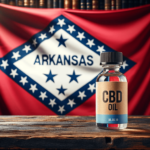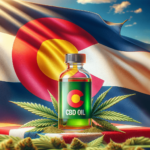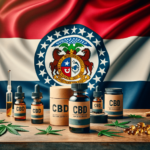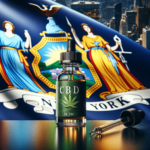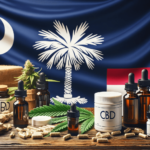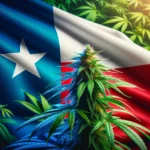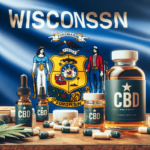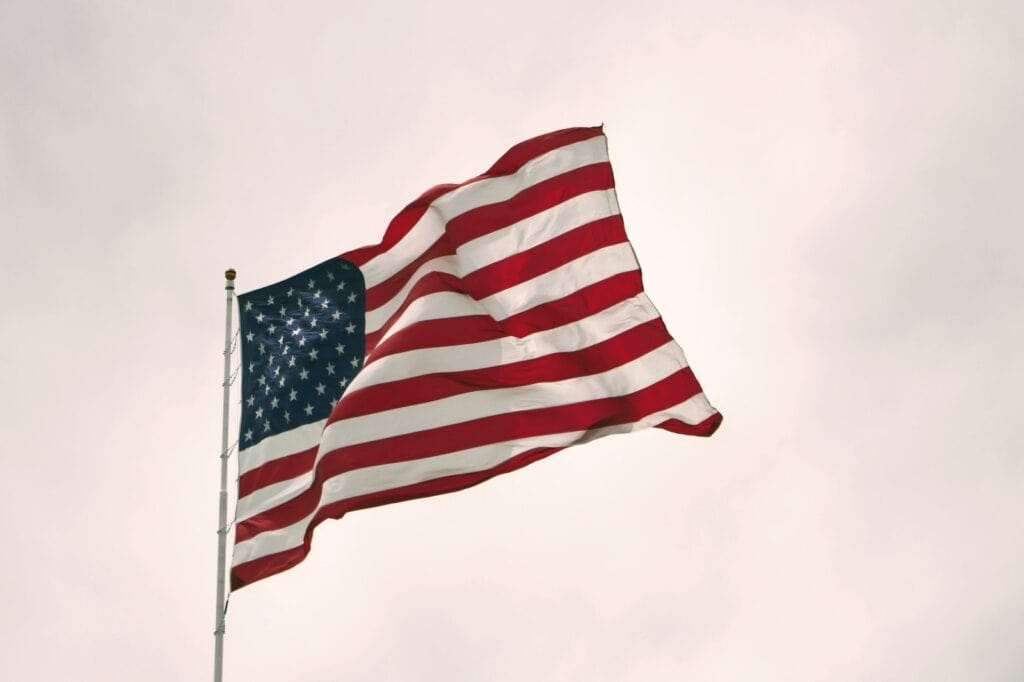
1. The Federal Perspective on CBD
The Farm Bill of 2018
In December 2018, the Agriculture Improvement Act, commonly known as the Farm Bill, was passed, making significant changes to the legal status of hemp-derived CBD. According to the bill, hemp and hemp-derived products containing less than 0.3% THC were removed from the list of controlled substances, effectively legalizing CBD at the federal level.
FDA Regulations
While the Farm Bill legalized hemp-derived CBD, the FDA retains authority over the regulation of CBD products intended for human consumption. The FDA’s stance is that CBD cannot be marketed as a dietary supplement or added to food and beverages without their approval.
2. CBD Legality by State
States with Recreational Use
Some states have fully embraced cannabis, including both marijuana and hemp-derived CBD, for recreational use. Individuals in these states can legally purchase and consume CBD products without any special restrictions. States with recreational use include California, Colorado, Washington, Oregon, and Alaska.
States with Medicinal Use
Many states have legalized medical marijuana and, by extension, CBD products for medicinal purposes. Patients with qualifying conditions can obtain a medical marijuana card, allowing them access to a broader range of CBD products. Some states with medicinal use include New York, Florida, Pennsylvania, and Arizona.
States with Strict Restrictions
Certain states have strict regulations surrounding CBD and even medical marijuana. Possession and use of CBD may be restricted to specific medical conditions, and access to these products can be challenging. States with strict restrictions include Idaho, South Dakota, Nebraska, and Kansas.
States with Ambiguous Laws
In some states, the legality of CBD remains ambiguous, leading to confusion for consumers and retailers. These states may have conflicting laws, and enforcement can vary, making it challenging to ascertain the legality of CBD. Examples of states with ambiguous laws are Wisconsin, Iowa, and Indiana.
All the States
- Buy CBD Cream in California
- Is CBD Cream and Oil legal in Alaska
- Is CBD legal in Alabama
- Is CBD legal in Arizona
- Is CBD legal in Arkansas
- Is CBD legal in California
- Is CBD legal in Colorado
- Is CBD legal in Connecticut
- Is CBD Legal in Delaware?
- Is CBD legal in Florida
- Is CBD legal in Georgia
- Is CBD legal in Hawaii
- Is CBD legal in Idaho
- Is CBD legal in Illinois
- Is CBD Legal in Michigan?
- Is CBD Legal in Missouri
- Is CBD Legal in New York?
- Is CBD Legal in South Carolina?
- Is CBD Legal In Texas?
- Is CBD Legal in Wisconsin?
- Is CBD Legal? Role of States in Regulating CBD
3. Traveling with CBD
Domestic Travel
With varying regulations from state to state, it’s crucial for travelers to understand the laws of both their departure and destination states regarding CBD. While CBD is federally legal, it’s advisable to research the specific laws in each state to avoid any legal issues.
International Travel
Traveling internationally with CBD can be even more complex. Different countries have distinct regulations, and CBD may be illegal in some places. It’s essential to research the legality of CBD in the destination country and comply with their laws to prevent any legal troubles.
4. Future of CBD Legality
Changing Legal Landscape
As CBD continues to gain popularity and scientific recognition, it’s likely that more states will adopt progressive CBD regulations. The legal landscape of CBD is continually evolving, and it’s essential to stay informed about any changes in your state.
Conclusion
CBD’s legal status across the United States is a complex and evolving issue. While the 2018 Farm Bill provided a significant breakthrough, individual states still have the authority to regulate CBD within their borders. Understanding the legality of CBD by state is vital for consumers, producers, and retailers to ensure compliance with the law and avoid legal complications.
FAQs
Q1: Is CBD legal in all 50 states?
A1: No, CBD’s legality varies from state to state, with some states having strict restrictions or even prohibiting its use.
Q2: Can I buy CBD online if it’s not legal in my state?
A2: Technically, you can purchase CBD online, but it’s essential to consider your state’s laws regarding CBD possession and usage.
Q3: Will CBD ever become federally legal?
A3: The future of federal CBD legalization remains uncertain, but with increasing public support and scientific evidence, it’s possible.
Q4: Can I travel with CBD on an airplane?
A4: Domestic travel with CBD is generally permissible, but international travel may present challenges due to varying regulations in other countries.
Q5: Can CBD be included in dietary supplements and food products?
A5: As of now, the FDA does not permit CBD to be marketed as a dietary supplement or added to food and beverages without their approval.


